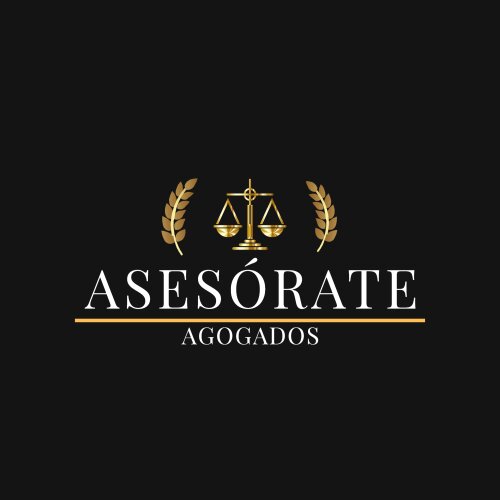Best Animal Law Lawyers in Colombia
Share your needs with us, get contacted by law firms.
Free. Takes 2 min.
Or refine your search by selecting a city:
List of the best lawyers in Colombia
About Animal Law in Colombia
Animal Law in Colombia has evolved significantly in recent years, influenced by both international standards and local advocacy for animal rights. The Colombian legal framework aims to protect animals from cruelty, exploitation, and abuse. Laws have been enacted to ensure animals are treated with respect and welfare is considered. Key legislation includes addressing issues such as the prevention of animal cruelty, regulation of animal ownership, and the duties of pet owners. The country's commitment to animal welfare is evident as it increasingly prioritizes ethical considerations in its legal structure.
Why You May Need a Lawyer
Individuals may require legal assistance in Animal Law for several reasons. Common situations include:
- Dealing with animal cruelty cases, either as a victim or defendant.
- Navigating disputes related to pet custody during divorce or separation.
- Understanding legal obligations and rights as a pet owner.
- Addressing issues related to noise complaints or property damage caused by animals.
- Ensuring compliance with local regulations for housing, breeding, or selling animals.
- Advocating for changes in local animal welfare laws.
Local Laws Overview
Colombia's legislative framework for animal protection is largely shaped by Law 1774 of 2016, which integrates animal cruelty as a punishable offense within the Penal Code. Some key aspects include:
- Defining and penalizing acts of animal cruelty with fines and imprisonment.
- Recognizing animals as sentient beings with entitlements to protection under the law.
- Imposing responsibilities on animal owners to provide adequate care and shelter.
- Specific regulations related to the use of animals in entertainment and research to ensure welfare standards are upheld.
Additionally, local ordinances may exist in different municipalities to address specific community needs related to animal welfare and control.
Frequently Asked Questions
What is the main legislation governing animal protection in Colombia?
The primary legislation is Law 1774 of 2016, which addresses animal protection and welfare by recognizing animals as sentient beings and establishing penalties for cruelty and mistreatment.
Are there penalties for animal cruelty in Colombia?
Yes, individuals can face fines and even imprisonment for acts of animal cruelty under Law 1774 of 2016.
How are animals viewed under Colombian law?
Animals are recognized as sentient beings, gaining them certain protections under the law to ensure their welfare and ethical treatment.
How can I resolve a pet custody dispute?
Pet custody disputes can often be settled with legal assistance through negotiation or mediation. In some instances, courts may get involved if no agreement is reached.
What should I do if I witness animal abuse?
If you witness animal abuse, it should be reported to the relevant authorities, such as police or local animal control, to ensure investigation and enforcement of legal protections.
Can I own exotic pets in Colombia?
Ownership of exotic pets is regulated, and certain species may be prohibited to protect both the animals and ecological balance. It's essential to check local regulations regarding specific species.
What are my responsibilities as a pet owner?
Pet owners must ensure their animals receive proper care, including adequate food, shelter, medical treatment, and attention to their emotional needs. Compliance with local laws is also required.
Is animal testing regulated in Colombia?
Yes, animal testing is subject to regulatory oversight to ensure ethical standards are met, minimizing harm and prioritizing alternatives whenever possible.
Are there legal considerations for animals in agriculture?
Animals used in agriculture are protected under various welfare regulations, which dictate humane treatment and living conditions.
What role do local municipalities play in animal law?
Municipalities may enact ordinances tailored to local needs, which can include measures on stray animal control, pet licensing, and community education initiatives regarding animal welfare.
Additional Resources
For those seeking further information or assistance in Animal Law, the following resources may be helpful:
- Ministry of Environment and Sustainable Development - Oversees animal welfare policies.
- Instituto Colombiano Agropecuario (ICA) - Regulates health standards for animals, including pets and livestock.
- Local animal shelters and NGOs - Provide advocacy and resources related to animal welfare.
Next Steps
If you require legal assistance, consider the following steps:
- Consult with a lawyer specializing in Animal Law to understand your rights and obligations.
- Prepare any relevant documentation or evidence related to your situation to facilitate consultation.
- Engage with local animal welfare organizations for support and guidance in addressing your legal concerns.
- Stay informed about ongoing legal developments in animal protection to better navigate any potential issues.
Lawzana helps you find the best lawyers and law firms in Colombia through a curated and pre-screened list of qualified legal professionals. Our platform offers rankings and detailed profiles of attorneys and law firms, allowing you to compare based on practice areas, including Animal Law, experience, and client feedback.
Each profile includes a description of the firm's areas of practice, client reviews, team members and partners, year of establishment, spoken languages, office locations, contact information, social media presence, and any published articles or resources. Most firms on our platform speak English and are experienced in both local and international legal matters.
Get a quote from top-rated law firms in Colombia — quickly, securely, and without unnecessary hassle.
Disclaimer:
The information provided on this page is for general informational purposes only and does not constitute legal advice. While we strive to ensure the accuracy and relevance of the content, legal information may change over time, and interpretations of the law can vary. You should always consult with a qualified legal professional for advice specific to your situation.
We disclaim all liability for actions taken or not taken based on the content of this page. If you believe any information is incorrect or outdated, please contact us, and we will review and update it where appropriate.
Browse animal law law firms by city in Colombia
Refine your search by selecting a city.















